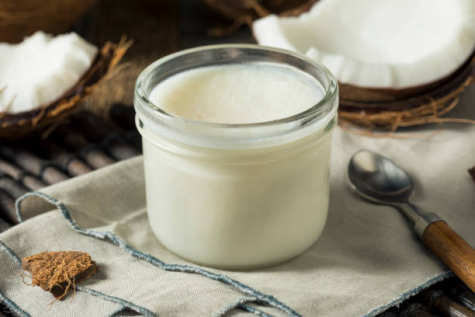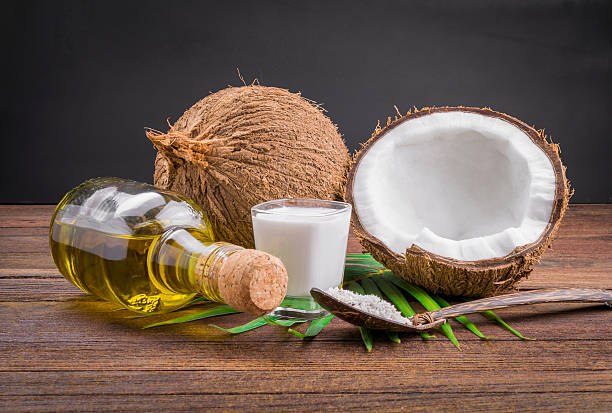The Clogging Reality of Coconut Oil
Coconut oil is an edible oil extracted from the kernel or meat of mature coconuts harvested from the coconut palm. It is one of the most sought-after and highly prized health ingredients in numerous cosmetic and beauty products, as well as in the culinary realm, and for a good reason. As per the USDA, coconut oil is rich in beneficial fats, which help balance the body’s cholesterol levels, and it also has natural antibacterial, anti-inflammatory, and antioxidant properties. Not only that but since ancient times, the perception of coconut oil is that it can cure pretty much everything. It is a commonly held belief that coconut oil can protect against heart disease, diabetes, cancers, Alzheimer’s, liver disease, kidney disease, osteoporosis, dental decay, skin infections, and the list goes on. However, most recently, coconut oil has been popularized and branded by famous Youtubers and the makeup artists of Instagram as skincare’s Holy Grail.
Credit: istockphoto.com
Said to moisturize the skin thoroughly and give it a radiant afterglow, the trend of using coconut oil has been booming for the last decade. However, all of the extravagant claims about the results of its usage fall short when actual research is involved. The most common misconception about coconut oil is that it does not harm the face at all, which is a complete myth. Coconut oil is comedogenic, meaning that it clogs the skin’s pores. When applied to the face, this only turns into a recipe for disaster, especially for those that tend to get blackheads and breakouts often. Even if it is hydrating, coconut oil is a very light moisturizer that sinks in quickly, which may appeal to some people, but not for those with very dehydrated skin as it does not moisturize deeply enough.
Now that coconut oil has been debunked, what would be some good alternatives? If it is in regards to skincare, argan oil would be the best bet. According to Adina Grigore, the founder of S.W., Basics, and author of Skin Cleanse, not only is it packed with loads of vitamin E and antioxidants, “it’s a super light and non-greasy oil that is hydrating to your skin, but also regulates your sebum oil, leaving you less likely to break out with acne from over-active glands. It also contains linoleic acid, which reduces inflammation in the skin and has antiseptic properties to help heal current breakouts.” Another good substitute would be avocado oil. “Avocados are rich in oleic acids, nutrients, and antioxidants such as vitamin A and E, which can help protect from environmental damage and combat aging,” says Susan Bard, MD, a dermatologist at Vanguard Dermatology. “It has also been shown to be beneficial in the wound-healing process by decreasing inflammation and promoting increased collagen synthesis.”

While coconut oil certainly has its benefits, people should think twice about buying it and do some research beforehand. Everything is not as it seems, and coconut oil is no exception.

Meet Isabella Gabrielle Emanueli Herrero. Isabella moved to Georgia from Puerto Rico because of the effects of Hurricane Maria. She states, “I think...


